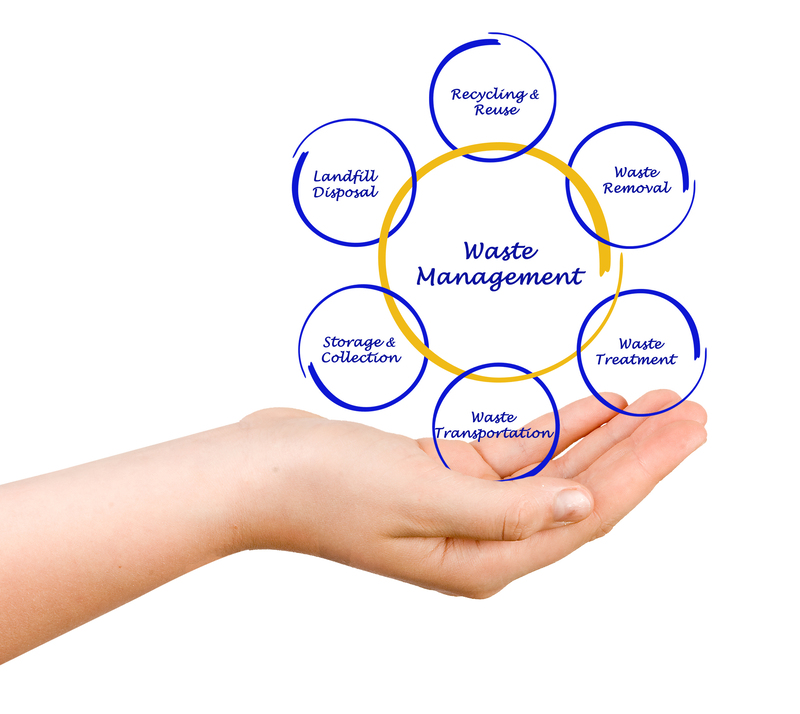Sustainable Solutions for Waste Disposal: Government Guidelines
Posted on 01/08/2024
In recent years, waste disposal has become a major issue around the world. The ever-growing population and its increasing consumption patterns have led to an alarming increase in waste generation. This has not only resulted in overflowing landfills and polluted water bodies, but it also poses a threat to human health and the environment. In response to these challenges, governments around the world have implemented guidelines for waste disposal that aim to promote sustainability. In this article, we will explore some of these sustainable solutions for waste disposal as advised by government guidelines.
1. Reduce, Reuse, and Recycle
The most effective way to manage waste is to reduce the amount of waste being generated in the first place. Government guidelines recommend adopting the 3R approach - Reduce, Reuse, and Recycle - to minimize waste production. This can be achieved by reducing unnecessary packaging, reusing items such as bottles and containers, and recycling materials like paper, plastic, and metal. By following these practices, we can significantly reduce the amount of waste that ends up in landfills and incinerators.

2. Proper Segregation
Proper segregation of waste is essential for effective waste management. Governments encourage households and businesses to separate their waste into different categories such as organic, recyclable, and hazardous materials. This allows for more efficient recycling processes and minimizes the risk of contamination or pollution caused by improper disposal.
3. Composting
Organic waste makes up a significant portion of household waste and can easily be turned into compost instead of ending up in landfills. Composting involves breaking down biodegradable materials like food scraps and yard waste into nutrient-rich soil amendments that can be used for gardening or farming purposes. Government guidelines promote home composting as a sustainable solution for managing organic waste.
4. Hazardous Waste Disposal
Many household and industrial products contain hazardous materials that can harm the environment and human health if not disposed of properly. Government guidelines outline strict regulations for the collection, transportation, and disposal of hazardous waste. Specialized facilities equipped to handle such waste are designated by governments, and it is crucial to abide by these guidelines to prevent any adverse effects on the environment.
5. Waste-to-Energy
Waste-to-energy is a process that involves converting non-recyclable waste into energy sources like electricity or heat. This technology has gained popularity in recent years as a sustainable solution for managing waste that cannot be recycled. Government guidelines recommend having proper regulations in place to ensure that this process does not have any adverse effects on air or water quality.
While government guidelines provide a framework for sustainable waste management, there are also some pros and cons to consider when implementing these solutions.
Pros:
- Reduce environmental pollution
- Promote resource conservation
- Create employment opportunities in recycling and waste management industries
- Reduce greenhouse gas emissions from landfills
Cons:
- Initial costs involved in setting up facilities for recycling and composting
- Lack of awareness among the public on proper waste segregation and disposal methods
- Limited availability of infrastructure for hazardous waste disposal in some regions
Tips:
- Educate yourself about your local government's waste disposal guidelines.
- Practice the 3R approach - Reduce, Reuse, Recycle.
- Invest in reusable products to reduce single-use items.
- Properly segregate your waste before disposal.

Takeaways:
Incorporating sustainable solutions for waste disposal into our daily lives is crucial for protecting the environment. By following government guidelines and adopting practices such as reducing, reusing, recycling, composting, and proper segregation, we can all contribute towards creating a cleaner and healthier planet for future generations. It is essential to stay informed and take responsibility for our waste to ensure a sustainable future.
Conclusion:
Government guidelines play a critical role in promoting sustainable waste management practices. By following these guidelines, we can minimize the environmental impact of waste disposal and create a more sustainable future. However, it is also essential for individuals to take responsibility and make conscious efforts towards reducing and managing waste. Together, we can make a significant difference in creating a cleaner and greener planet for ourselves and future generations.
Latest Posts
UK's Environmental Issues: Waste Dumping
Effortless Household Recycling Ideas






